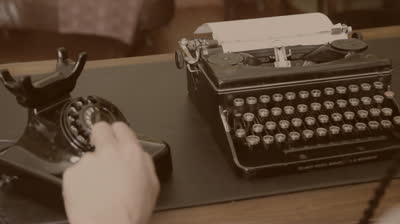One of the goals an editor strives to achieve when working on a manuscript is doing their job so well that no one notices they revised the text at all. The problem with successful editors, however, is that their names are often forgotten in lieu of the authors whose work they are editing.
One such editor is Maxwell Perkins. Perkins was an influential editor who worked with famous authors such as F. Scott Fitzgerald, Ernest Hemingway, and Thomas Wolfe. Perkins began his career working at The New York Times before being hired in 1910 at Charles Scribner’s Sons, a prestigious New York publishing house.
Perkins’ first breakthrough as an editor at Scribner’s came from a manuscript titled The Romantic Egoist, written by a 22-year-old Princeton graduate named F. Scott Fitzgerald. The work had been submitted to numerous other editors who had bombarded it with negative comments, but Perkins saw potential. Perkins said, “If we aren’t going to publish a talent like this, it is a very serious thing… we might as well go out of business.” Working with Perkins, Fitzgerald rewrote his manuscript twice and renamed it This Side of Paradise before it was published in 1920. Perkins also had a big influence on Fitzgerald’s novel The Great Gatsby.
Perkins also worked with Ernest Hemingway, a writer who, like Fitzgerald, was extremely popular. Perkins helped Hemingway publish his first novel, The Sun Also Rises, in 1926. Perkins continued to work with both Fitzgerald and Hemingway after their first novels were published.
In 1928, Thomas Wolfe submitted his first novel O Lost to Scribner’s after already being rejected by numerous publishers. Once again, Perkins saw potential in a rejected manuscript and helped Wolfe; the two spent months editing and restructuring the novel until it was published in 1929 under the title Look Homeward, Angel.
Maxwell Perkins represents the important position an editor holds; without people like him, authors such as Fitzgerald and Hemingway never would have entered the world of writing.
(Photo courtesy of alchetron.com)



